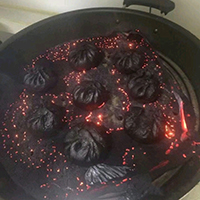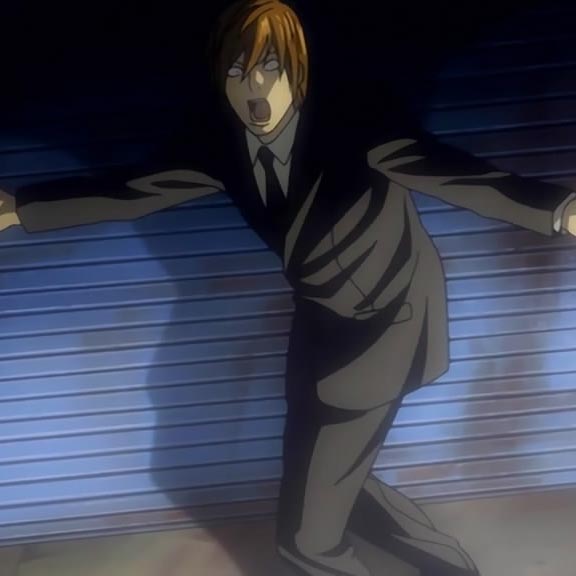记录些东西
#1059559
High Flight
BY JOHN GILLESPIE MAGEE JR.
Oh! I have slipped the surly bonds of Earth
And danced the skies on laughter-silvered wings;
Sunward I've climbed, and joined the tumbling mirth
of sun-split clouds,—and done a hundred things
You have not dreamed of—wheeled and soared and swung
High in the sunlit silence. Hov'ring there,
I've chased the shouting wind along, and flung
My eager craft through footless halls of air ....
Up, up the long, delirious, burning blue
I've topped the wind-swept heights with easy grace
Where never lark nor ever eagle flew—
And, while with silent lifting mind I've trod
The high untrespassed sanctity of space,
Put out my hand, and touched the face of God.
BY JOHN GILLESPIE MAGEE JR.
Oh! I have slipped the surly bonds of Earth
And danced the skies on laughter-silvered wings;
Sunward I've climbed, and joined the tumbling mirth
of sun-split clouds,—and done a hundred things
You have not dreamed of—wheeled and soared and swung
High in the sunlit silence. Hov'ring there,
I've chased the shouting wind along, and flung
My eager craft through footless halls of air ....
Up, up the long, delirious, burning blue
I've topped the wind-swept heights with easy grace
Where never lark nor ever eagle flew—
And, while with silent lifting mind I've trod
The high untrespassed sanctity of space,
Put out my hand, and touched the face of God.
#1059563
>>Po.1059559
The poem is ‘romantic’ in the sense that T. E. Hulme used the word: celebrating the boundlessness and potential of flight, the escapism and possibility that the modern aeroplane offers to man. Writing in 1912, Hulme had drawn a distinction between ‘romanticism’ and ‘classicism’:
What I mean by classical in verse, then, is this. That even in the most imaginative flights there is always a holding back, a reservation. The classical poet never forgets this finiteness, this limit of man. He remembers always that he is mixed up with earth. He may jump, but he always returns back; he never flies away into the circumambient gas.ohn Gillespie Magee’s poem celebrates the act of flight as a means of transcending or ‘slipp[ing] the surly bonds of Earth’, rather than having to confine himself, in Hulme’s phrase, to being ‘mixed up with earth’. The ‘air’ or sky through which the poet flies is described as ‘footless halls’: ‘footless’ both in having no bottom but also in being measureless (in feet or other units).Not only this, but Magee’s plane, he declares, enables him to fly higher than larks or eagles: machine has allowed man to transcend the boundaries of the natural world and exceed what nature can do. In the final lines of the poem, we almost leave the natural behind for the supernatural, as space is described as having a ‘sanctity’ to it, while Magee feels as though he can put his hand out and touch God’s face. This ‘delirious’ sonnet is romantic through-and-through, in the truest sense of Hulme’s term. Man has become almost a god himself.
The poem is ‘romantic’ in the sense that T. E. Hulme used the word: celebrating the boundlessness and potential of flight, the escapism and possibility that the modern aeroplane offers to man. Writing in 1912, Hulme had drawn a distinction between ‘romanticism’ and ‘classicism’:
What I mean by classical in verse, then, is this. That even in the most imaginative flights there is always a holding back, a reservation. The classical poet never forgets this finiteness, this limit of man. He remembers always that he is mixed up with earth. He may jump, but he always returns back; he never flies away into the circumambient gas.ohn Gillespie Magee’s poem celebrates the act of flight as a means of transcending or ‘slipp[ing] the surly bonds of Earth’, rather than having to confine himself, in Hulme’s phrase, to being ‘mixed up with earth’. The ‘air’ or sky through which the poet flies is described as ‘footless halls’: ‘footless’ both in having no bottom but also in being measureless (in feet or other units).Not only this, but Magee’s plane, he declares, enables him to fly higher than larks or eagles: machine has allowed man to transcend the boundaries of the natural world and exceed what nature can do. In the final lines of the poem, we almost leave the natural behind for the supernatural, as space is described as having a ‘sanctity’ to it, while Magee feels as though he can put his hand out and touch God’s face. This ‘delirious’ sonnet is romantic through-and-through, in the truest sense of Hulme’s term. Man has become almost a god himself.
#1059564
>>Po.1059559
引用诗1. High Flight
引用诗1. High Flight
#1059803
St. Erasmus, also called Elmo, (died 303?, Formia, Italy; feast day June 2), early Christian bishop and martyr. He is one of the patron saints of sailors and is associated with Saint Elmo’s fire (the glow accompanying the brushlike discharges of atmospheric electricity that appears as a tip of light on the masts of ships during stormy weather) as the visible sign of his guardianship over them. Erasmus is one of the 14 Holy Helpers, a group of saints conjointly venerated for the power of their intercession.
#1059860
Robert·Louis·Stevenson 'kidnapped'
#1060103
#1060104
>>Po.1060103
伦敦塔的渡鸦
伦敦塔的渡鸦
#1060170
或许有那么一点点的可能是Hamlyn命名的来源
网页链接
网页链接
#1060178
#1060189
the late unpleasantness
1. Any recent war, but used especially in reference to the American Civil War.
2. By extension, any recent controversial or divisive event or period.
1. Any recent war, but used especially in reference to the American Civil War.
2. By extension, any recent controversial or divisive event or period.
- 1
















